
30th October 2018
8 books to develop young people’s coding skills
Libraries have always been spaces where young people can explore new ideas and access emerging technologies. It makes sense that they would be an ideal space to host a CoderDojo club.
Not only are libraries centres of learning for a community, they often are jammed with books on computers and coding to bolster young peoples understanding and love of making with technology! Below are 8 books we have found useful for explaining coding concepts and skills to young people!
Ages 4-7
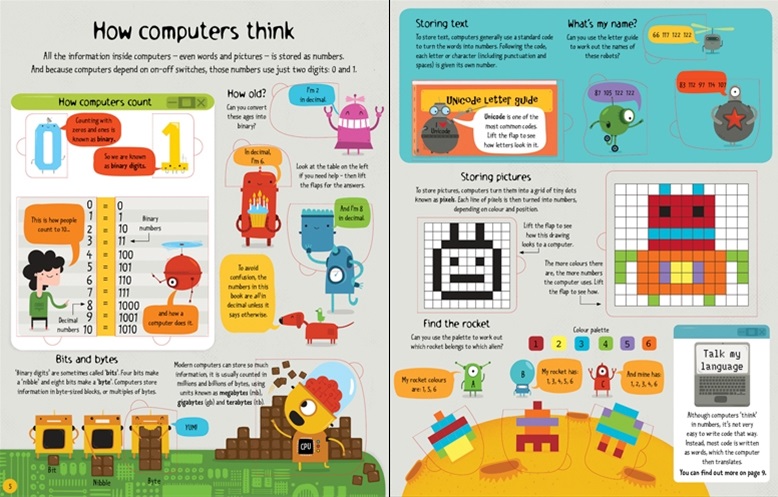
Lift-the-Flap Computers and Coding
By Rosie Dickins
This is the ultimate lift the flap book about computers. It’s aimed at young children, but in my opinion you are never too old for a lift the flap book. Besides, how better to see inside a computer than to lift-the-flap?
Hello Ruby: Adventures in Coding
By Linda Liukas
This books offer a great mix of storytelling and activities to keep young people engaged. Part picture book, part workbook, it encourages children to problem-solve like a coder! It allows them to find and assess a problem, discover the solution and go through the steps to resolve it. There are also lots of online resources to explore and play with, including printable resources for offline games at: https://www.helloruby.com/play
Ages 7+
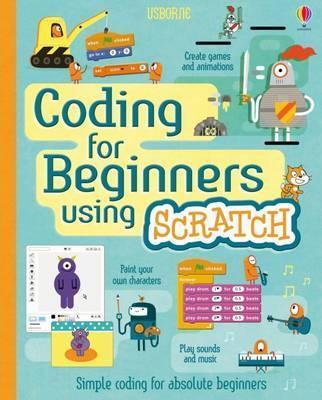 Coding for Beginners with Scratch
Coding for Beginners with Scratch
by Rosie Dickins
This book is a great for complete beginners to Scratch. It’s spiral binding means it’s really practical to use beside a computer as well. Young people can read and carry out steps in Scratch side-by-side. The book is colourful and laid out with small snippets of text (you can see a preview of the book here), so it’s clear and easy to follow for young readers.
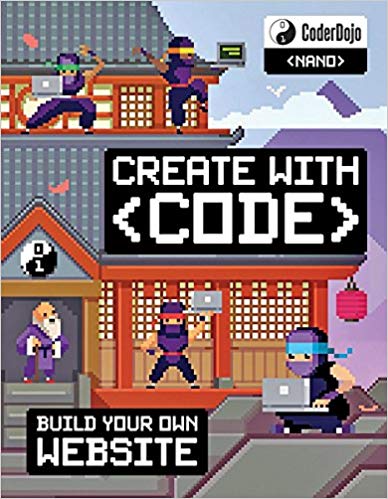 CoderDojo Nano: Building a Website: Create with Code
CoderDojo Nano: Building a Website: Create with Code
By Clyde Hatter
Developed through years of running our free coding clubs, this CoderDojo book tells you all you need to know to build your own website. Aimed at children aged 8 and up, the books guides you with clear and colourful instructions and tips for coding in HTML, CSS, and Javascript. Starting with the basics, you will quickly progress to the fun parts that make everyone want to visit your website: from adding photos to embedding Youtube videos and Google maps, to making your menu page something to marvel at. The book is available in both paperback and flexibound.
Coding for Beginners with Python
By Louie Stowell
In the same series as the book above, this version is aimed at young people just starting to learn Python. It too is spiral bound so young people can read it easily and carry out steps on their computer at the same time (you can see a preview here).
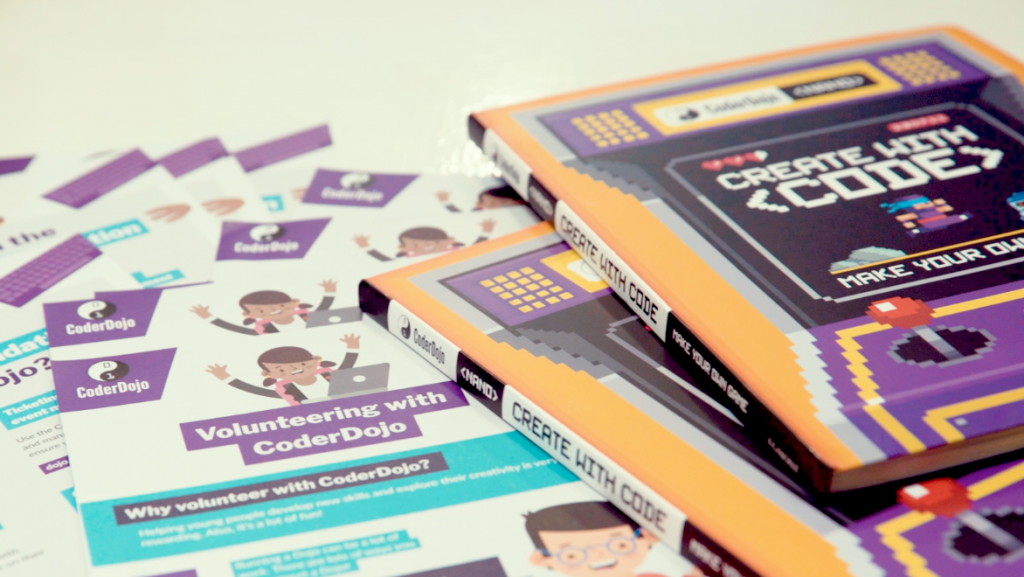
Ages 11+
CoderDojo Nano: Make Your Own Game: Create With Code
By Jurie Horneman
It explains the fundamentals of the JavaScript language in a clear, logical way to support and guide you to create your very own computer game! You will learn how to animate characters, create a world for your game, and use the physics of movement within it. The book is full of clear step-by-step instructions and illustrated screenshots to make reviewing your code easy. Additionally, challenges and open-ended prompts at the end of each section will encourage you to get creative while making your game! This book is the perfect first step towards understanding game development.
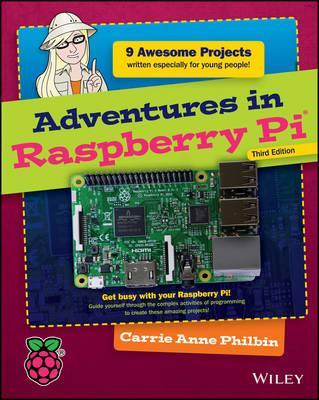 Adventures in Raspberry Pi
Adventures in Raspberry Pi
By Carrie Anne Philbin
Do you want to create fun Raspberry Pi projects? Aimed at 11 – 15 year olds, this book starts with the basics and builds up your skills as you create stories and games, program shapes, code music in Sonic Pi, and even build Minecraft worlds! Carrie Anne guides young people through projects with clear, easy to follow instructions and explanations each step of the way. It’s an ideal starting point for mastering the Raspberry Pi.
Code For Teens: The Awesome Beginner’s Guide to Programming Volume 1: Javascript
by Jeremy Moritz
Written in an informal and entertaining style, Mortiz’s Code for Teens is your one-stop-shop to learning all there is know about Javascript, the most commonly used coding language in the world! Filled with tips, tricks, strategies, and quizzes, this guide is the perfect way to take you from beginner to expert in all things Java.